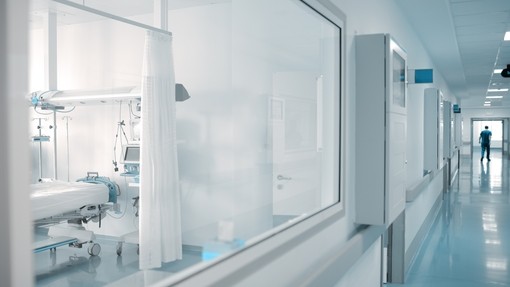Coronavirus Bill – key facts

Details
The Coronavirus Bill 2020 will receive its second reading in the House of Commons on Monday 23 March 2020. None of the provisions will apply until the Bill has royal assent. Once it has, you should check carefully that the specific provision has come into force and check regularly that it remains in force. The government, on the advice of the chief medical officer, will be able to start and stop the provisions at various times, as needed.
Emergency registration of health and social care professionals
- Provision has been made to allow the temporary registration of the following healthcare professionals:
- a registered nurse
- midwife
- nursing associate
- arts therapists
- chiropodists
- clinical scientists
- dietitians
- medical laboratory technicians
- occupational therapists
- orthoptists
- paramedics
- physiotherapists
- prosthetists and orthotists
- radiographers
- speech and language therapists
- Provision has also been made to allow the temporary registration of social workers
Suspension of duties to undertake assessments of need/discharge of patients from hospital
- Trusts are not required to ensure that any assessment of CHC, following the National Framework is completed and/or consultation with social services prior to discharge from hospital
- When issuing an assessment notice, trusts are not required to include a statement that there has been consideration of CHC eligibility
- CCGs are not under any duty to assess patients for eligibility for CHC or FNC
- If a choice is made to assess a person for eligibility for CHC then the duty to consider FNC also applies
- The suspension of these duties applies in relation to duties arising before the act comes into force
- Local authorities are not required to undertake any assessments of need under the Care Act for either persons appearing to be in need of care and support and/or carers’ assessments unless it is identified that not doing so would result in a breach of the person’s human rights
- When the local authority is responding to an assessment notice they must inform the trust:
- whether the patient has needs for care and support;
- (where applicable) whether a carer has needs for support;
- which (if any) of those needs the authority plans to meet; and
- how the authority plans to meet those needs.
Deaths and inquests
- A registered medical practitioner, who is not the practitioner who attended the deceased person during their last illness may sign a certificate if:
- the practitioner who attended is unable to sign the certificate or it is impractical for that practitioner to sign the certificate; and
- they are able to state to the best of their knowledge and belief the cause of death.
- A registered medical practitioner is not required to notify the relevant senior coroner of a person’s death in the circumstances described in regulation 3(1)(e) or (f) of the 2019 Regulations unless the practitioner also reasonably believes that there is no registered medical practitioner who may sign a certificate as set out at (a) and (b) above.
- While Covid-19 is a notifiable disease, there is no requirement for an inquest to be held with a jury following a Covid-19 related death
Indemnity for health service activity
- For any civil liabilities arising in respect of or consequent on death, personal injury or loss which arises out of, or in connection with, a breach of duty of care owed in connection with the provision of health care services, indemnity may be offered by the secretary of state where existing insurance does not cover this
- The secretary of state or a person authorised by the secretary of state will determine whether a qualifying liability has arisen and if so the amount of any payment to be made
- This can cover situations where health services are being delivered to care for or treat a person who has, or is suspected of having, coronavirus
- It also includes situations where a replacement health professional is used to deliver care and treatment to patients to whom they would not usually be responsible for delivering care, because the professional who would usually deliver this is unable to due to a reason relating to coronavirus
Powers in relation to potentially infectious persons
- If the secretary of state, after consultation with the chief medical officer or any of the deputy chief medical officers of the Department of Health and Social Care, declares that the incidence or transmission of coronavirus constitutes a serious and imminent threat to public health, then there will be powers conferred on public health officers to:
- direct the person to go immediately to a place specified in the direction which is suitable for screening and assessment;
- remove the person to a place suitable for screening and assessment; or
- direct a constable to remove the person.
- A person is ‘potentially infectious’ at any time if:
- the person is, or may be, infected or contaminated with coronavirus, and there is a risk that the person might infect or contaminate others with coronavirus; or
- the person has been in an infected area within the 14 days preceding that time.
- Powers may only be exercised where the officer considers that there are reasonable grounds to suspect that the person is potentially infectious and that it is necessary and proportionate to do so:
- in the interests of the person;
- for the protection of other people; or
- for the maintenance of public health.
- The person being removed needs to be informed of the above reasons and that it is an offence to refuse without reasonable grounds and/or to abscond.
- The person can be held for the purpose of screening and assessment for up to 48 hours.
- The person can be required to be screened and assessed, which can include taking of biological samples, assessing symptoms and state of health, an assessment of the appropriate measures to take to mitigate the risk that the person may infect or contaminate others with coronavirus and answering questions in relation to travel history and contact with other persons.
- The taking of biological samples and undertaking of health assessments would need to be completed by healthcare professionals.
- Constables may hold a person who they believe is potentially infectious for up to 24 hours pending attendance of a public health officer to exercise their powers set out above and immigration officers may hold a person for up to three hours. Those time periods can be extended for a further 24 hours for constables and nine hours for immigration officers, where it is not reasonably practicable for the public health officer to exercise their powers within the initial timeframe.
- The time extensions can be granted by a superintendent or above for the police and by a senior immigration office for the immigration service
- Where a person in England has been screened and assessed by a public health officer and either:
- the screening confirmed that the person is infected or contaminated with coronavirus; or
- the screening was inconclusive; or
- the officer has reasonable grounds to suspect that the person is potentially infectious.
- The officer may impose requirements and restrictions on the person. This can include requirements to provide information; contact information; to attend for the purposes of further screening and assessment; to remain at a specified place for a specified period or to remain at a specified place in isolation from others for a specified period.
- Restrictions can include restrictions on the person’s movements or travel (within or outside the United Kingdom); the person’s activities (including their work or business activities); the person’s contact with other persons or with other specified persons.
- Any restriction must be for no longer than 14 days and must be reviewed by the public health officer within 48 hours for reconsideration. Restrictions can be extended for a further 14 days if the public health officer considers it to be necessary.
- There are police powers to return any person being held who absconds, and reasonable force can be used to remove the person to and/or keep them at a place for assessment and testing.
- There will be a process of appeal established for individuals to challenge any requirement or restrictions imposed.
Impact on NHS employers
Pensions
- The Bill suspends the application of a number of provisions in the NHS Pension Scheme Regulations for all three of the NHS Pension Schemes (1995, 2008 and 2015 Schemes) which would otherwise act as financial barriers for individuals returning to NHS employment.
- The amendments would allow individuals to continue or return to NHS employment without infringement on their NHS pension in payment which would otherwise apply.
Emergency volunteering leave
- The Bill creates a temporary new form of statutory unpaid leave for employees and workers who wish to volunteer, to be called Emergency Volunteering Leave.
- The clause also includes certain rights and protections for employees and workers who take Emergency Volunteering Leave, including, for example, the maintenance of terms and conditions of employment during any period of leave and protection from detriment or dismissal for taking the leave.
- The clause also provides an obligation on the secretary of state for health and social care to establish a compensation scheme, to compensate eligible volunteers for some loss of income and expenses incurred.
- To mitigate the impact on business of employees becoming volunteers, the maximum amount of Emergency Volunteering Leave an individual can take is four weeks in any volunteering period of 16 weeks. Agency staff can also become volunteers under the scheme.
- The government hopes that significant numbers of suitably qualified or experienced individuals will come forward to act as volunteers and that this will significantly benefit the NHS as it attempts to treat those who contract the Covid-19 virus.
Changes to the Mental Health Act 1983
Applications for detention under s.2 and s.3
- AMHPs can make applications for detention under s.2 or s.3 founded on a single medical recommendation if they consider obtaining two medical recommendations would be ‘impractical or would involve undesirable delay’.
- The single medical recommendation needs to be completed by an s.12 approved doctor but there is no requirement for previous acquaintance with the patient.
- Statutory forms can continue to be used with appropriate amendments where they do not fit with the modified provisions.
- Upon scrutiny if the hospital managers are not satisfied that the single medical recommendation is sufficient, then a fresh medical recommendation can be obtained within 14 days of the patient’s admission.
Holding powers
- Doctors’ holding powers extended from 72 hours to 120 hours
- The report can be completed by any registered medical practitioner or approved clinician where ‘it is impractical or would involve undesirable delay’ for the clinician in charge of treatment to complete this
- Nurses’ holding power extended from 6 hours to 12 hours
Treatment - Administration of medicine to persons liable to detention in hospital
- SOAD not required to certify continuation of medication after three months if the RC considers that this would be ‘impracticable or would involve undesirable delay’.
- Consultation can take place with one other person rather than two – requirements are:
- the person must have been professionally concerned with the patient’s medical treatment; but
- not a nurse, registered medical practitioner, RC or AC in charge of the treatment in question
Detention in place of safety
- S.135 and s.136 timeframes extended from 24 hours to 36 hours;
- Twelve hour extension can still be given after 36 hours if the criteria are met
Patients concerned with the criminal justice system
- Time limit of ’12 weeks in all’ for patients remanded to hospital under sections 35 and 36 is removed, so there is now no total time limit in place. It will remain the case that a person cannot be remanded to hospital for more than 28 days at a time.
- Courts can rely on one medical recommendation for the following sections:
- s.36, s.37, s.38, s.51
- Courts can rely on one medical recommendation for s.45A, but the practitioner must have given evidence orally.
- Once a decision has been made to admit a patient to hospital under one of the above sections, the time limit for transfer has been amended to include ‘or as soon as it is practicable after the end of that period’ but this is limited to a further seven days.
- Prison transfers under s.47 or s.48 can be granted on the basis of one medical recommendation;
- The timeframe for transfers to be completed under s.47 or s.48 is extended from 14 days to 28 days.
For further updates and other articles discussing the impact of the coronavirus please view our coronavirus hub.






